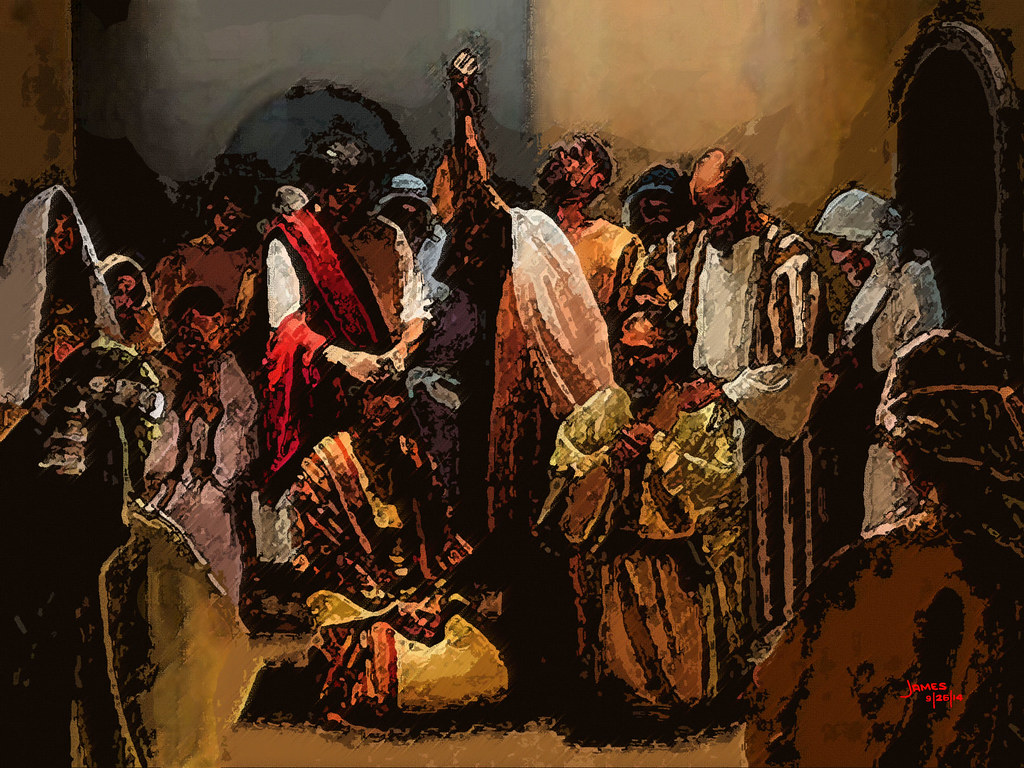THE SEED
“While they were worshiping the Lord and fasting, the Holy Spirit said, “Set apart for me Barnabas and Saul for the work to which I have called them.” So after they had fasted and prayed, they placed their hands on them and sent them off.” Acts 13:2-3 NIV
The event from the opening scripture expresses a strong moment of worship in fasting, and prayers to receive divine direction. “As they devoted themselves to the Lord, the Holy Spirit spoke, designating Barnabas and Saul for a specific purpose.” This event brings out the connection between spiritual disciplines like fasting, prayer, and God’s guidance.It’s a reminder that in our times of prayer and fasting, we create a space for the Holy Spirit to speak into our lives. Fasting is not just about abstaining from food; it’s a deliberate act of seeking God’s will and direction. The Biblle says, “You will seek me and find me when you seek me with all your heart.” Just as Barnabas and Saul were set apart for a special mission after a season of fasting and prayer, we can also receive divine direction for navigating our way through life and our devotion can also pave the way for divine assignments to be fulfilled in our lives. According to the lesson from our opening Bible verses, We are encouraged to approach God with open hearts, ready to receive His guidance, and to act upon it with faith. Also, as we fast and pray, let’s be attentive to the prompting of the Holy Spirit so that our worship will not only be an expression of faith but also a way for God to reveal His purpose for us. Like Barnabas and Saul, we should be ready to step into the work to which He has called us, through the guidance of the Holy Spirit.
BIBLE READING: Acts 13:1-5
PRAYER: Lord let me receive guidance on my direction in life as I worship you in my prayers and fast in Jesus name. Amen
AWE ATI ADURA, WIWA ITONI NIWAJU RE
IRUGBIN NAA
Nígbà tí wọ́n sì ń sin Olúwa tí wọ́n sì ń gbààwẹ̀, Emí Mímọ́ wí pé, “Ẹ ya Bánábà àti Sọ́olù sọ́to fún mi fún iṣẹ́ tí mo pè wọ́n sí.” Nítorí náà, lẹ́yìn tí wọ́n ti gbààwe tí wọ́n sì ti gbàdúrà, wọ́n gbé ọwọ́ lé wọn, wọ́n sì rán wọn lọ.” Iṣe Awon Aposteli 13:2-3
Iṣẹlẹ naa lati inu iwe-mimọ ṣi n ṣalaye akoko isin ti o lagbara ni ãwẹ, ati awọn adura lati gba itọsọna atọrunwa. “Bí wọ́n ṣe ya ara wọn sí mímọ́ fún Olúwa, Emí Mímọ́ soro, ó yan Bánábà àti Sọ́olù fún idi kan pàtó.” Iṣẹlẹ yii n mu asopọ jade laarin awọn ilana ẹmi bii ãwẹ, adura, ati itọsọna Ọlọrun. O jẹ olurannileti pe ni awọn akoko adura ati ãwẹ wa, a ṣẹda aaye kan fun Ẹmi Mimọ lati sọrọ sinu igbesi aye wa. Ààwe kìí ṣe nípa jíjáwọ́ nínú oúnjẹ; ó jẹ́ ìṣesí ìmoràn láti wá ìfẹ́ àti ìtọ́sọ́nà Ọlọ́run. Bíbélì sọ pé: “Ẹ ó wá mi, ẹ ó sì rí mi nígbà tí ẹ bá fi gbogbo ọkàn yín wá mi.” Gẹ́gẹ́ bí Bánábà àti Sọ́olù ṣe yà sọ́to fún iṣẹ́ àkànṣe kan lẹ́yìn àkókò ààwe àti àdúrà. A tún lè gba ìtọ́sọ́nà àtorunwá fún ririn irinajo wa ninu aye àti ìfọkànsìn wa tún lè ṣí onà síle fún àwọn iṣẹ́ àyànfúnni àtorunwá láti ní ìmúṣẹ nínú ìgbésí ayé wa. Gẹ́gẹ́ bí ekọ́ tó wà nínú àwọn ẹsẹ Bíbélì,, a ro wá láti sún mọ́ Ọlọ́run tọkàntọkàn, ká múra tán láti gba ìtọ́sọ́nà Rẹ̀, ká sì máa fi ìgbàgbọ́ si. Bákan náà, bí a ṣe ń gbààwe tí a sì ń gbàdúrà, ẹ jẹ́ kí a tẹ́tí síle sí ìtoni Emí Mímọ́ kí ìjọsìn wa má bàa jẹ́ ìfihàn ìgbàgbọ́ nìkan ṣùgbọ́n bákannáà onà fún Ọlọ́run láti fi ète Re fún wa hàn. Gẹ́gẹ́ bí Bánábà àti Sọ́olù, a gbọ́do múra tán láti te síwájú nínú iṣẹ́ tí Ó ti pè wá sí, nípasẹ̀ ìdarí Emí Mímọ́.
BIBELI KIKA: Ìṣe Awon Aposteli 13:1-5
ADURA: Oluwa jẹ ki n gba itọsọna lori itọsọna mi ni igbesi aye bi Mo ṣe jọsin fun ọ ninu awọn adura mi ati gbawẹ ni orukọ Jesu. Amin
